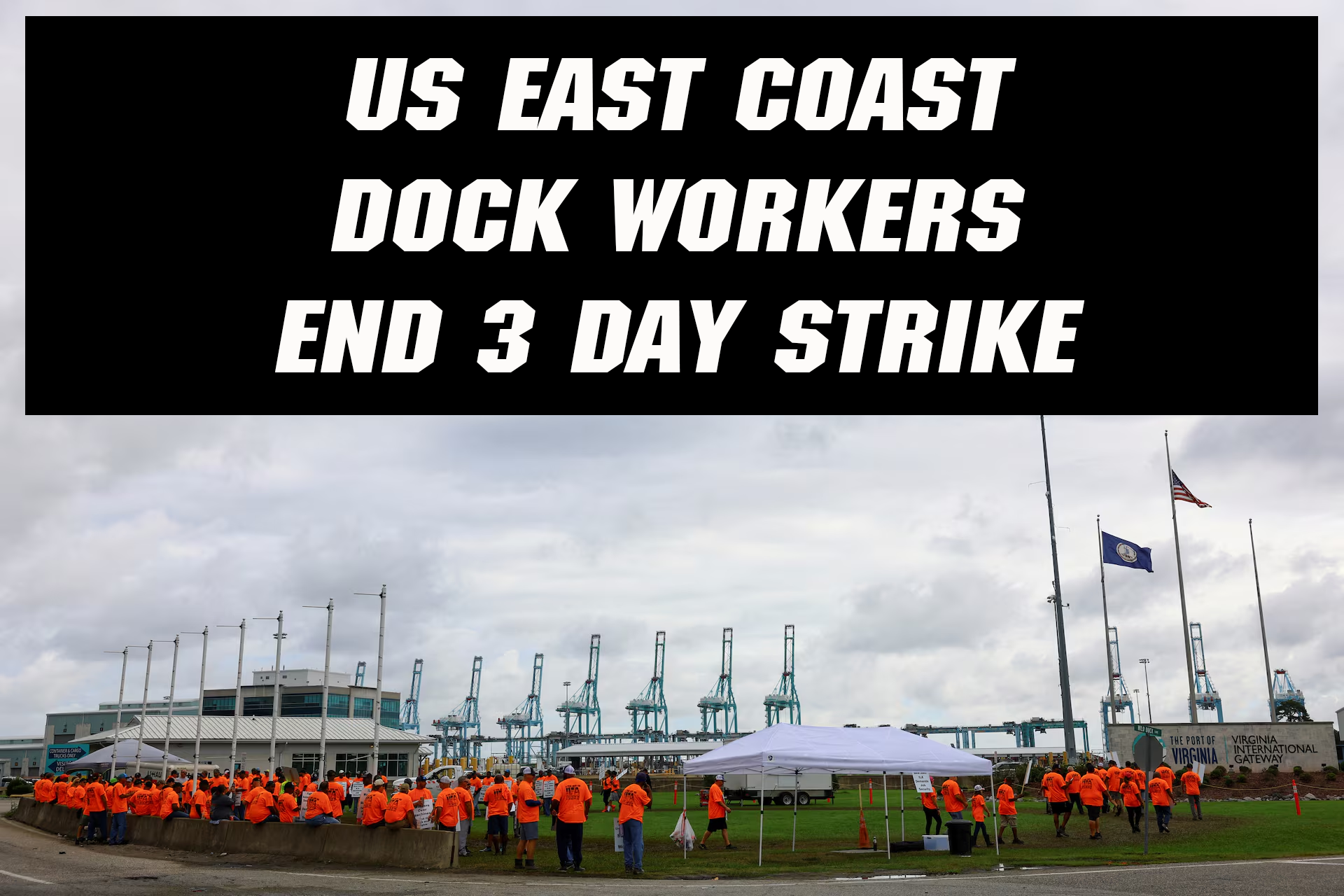US dock workers agree on deal with port operators to end strike. The US ports strike that shut down shipping on the east and Gulf coasts for three days came to an end on Thursday after dock workers struck a tentative deal with port operators.
The International Longshoremen’s Association (ILA) announced that the union had reached an agreement with the United States Maritime Alliance (USMX) on wages, suspending their walkout until January. Work would resume immediately, the union said.
The tentative agreement is for a wage hike of around 62% over six years, two sources familiar with the matter told Reuters, including a worker on the picket line who heard the announcement. That would raise average wages to about $63 an hour from $39 an hour over the life of the contract. The International Longshoremen’s Association (ILA) workers union had been seeking a 77% raise while the employer group – United States Maritime Alliance (USMX) – had previously raised its offer to a nearly 50% hike.
“Effective immediately, all current job actions will cease and all work covered by the Master Contract will resume,” the statement said.
Among key issues that remain unresolved is automation that workers say will lead to job losses.
Behind the scenes, however, the White House pressed the sides to come to terms, dispatching officials from the Labor Department, Transportation Department and National Economic Council to resolve their differences.


